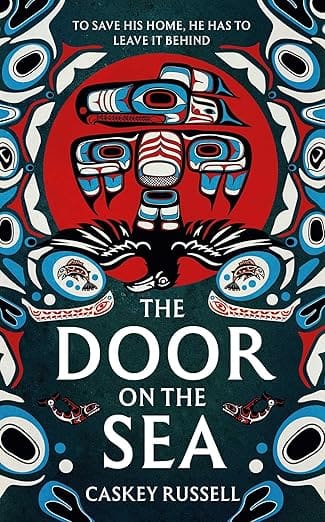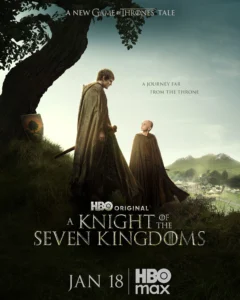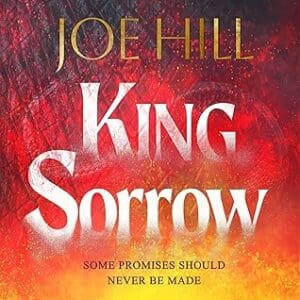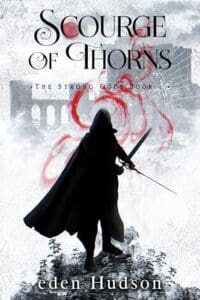
Synopsis:
An epic quest fantasy debut that is the Tlingit indigenous response to The Lord of the Rings.
When Elān trapped a salmon-stealing raven in his cupboard, he never expected it would hold the key to saving his people from the shapeshifting Koosh invaders plaguing their shores. In exchange for its freedom, the raven offers a secret that can save Elān’s home: the Koosh have lost one of their most powerful weapons, and only the raven knows where it is.
Elān is tasked with captaining a canoe crewed by an unlikely team including a human bear-cousin, a massive wolf, and the endlessly vulgar raven. To retrieve the weapon, they will face stormy seas, cannibal giants and a changing world. But Elān is a storyteller, not a warrior.
As their world continues to fall to the Koosh, and alliances are challenged and broken, Elān must choose his role in his own epic story.
Review:
As I read Caskey Russell’s The Door on the Sea, I realized for the first time just how much of the epic fantasy genre is European-coded. The people talk in British accents on the audiobooks and characters are humans, elves, and dwarves. Cities seem to always resemble medieval manorial towns and the social structure is often straight out of European Feudalism with Lords, Knights, and Serfs (perhaps with some different titles and names). Russell’s The Door on the Sea felt…off to me until I reoriented my perspective. I’ve done it before, and you probably have too for Asian-inspired fantasy books, but there have been hundreds of societies that have come and gone…so why not use something else as the basis for a new epic fantasy series?
And that’s precisely what Russell has done with his novel, The Door on the Sea, based on Tlingit folktales and legends.
The Tlingit, if you aren’t familiar with them, are indigenous to the Pacific Northwest (think British Columbia in Canada or southern Alaska). They are one of the tribes most famous for carving totem poles and have a rich tapestry of history and stories to draw from. So when our main character, Elān, travels via canoe to other fishing villages, it felt inauthentic until I had to stop myself to realize we can (and should) mine other cultures for their unique aspects and fascinating villains and characters.
Once I got past the “non-Euro-ness” of the story, I settled in and had a great time with Elān and his found-family fellowship. There was a certain Tolkein-esque vibe to how Russell sets up Elān on his journey. Our main protagonist, Elān, is a storyteller, not a warrior, and that aspect is woven throughout the story, giving other characters places to shine and a chance for Elān to add his own uniqueness to the quest. For a time, the tension between Elān and the female warrior who accompanies him, Kwa, was almost too much, but it finally got to a good place for the characters in the end.
Of course, what would this story be without a foul-mouthed, belligerent raven who may hold the key to defeating the Koosh, but is nearly entirely unwilling to assist the fellowship in the ups and downs of their journey to get it? At times, Raven was both my favorite and least favorite character, and perhaps that’s exactly what Russell was going for.
Ultimately, I enjoyed The Door on the Sea and will absolutely pick up the sequel to see what Elān and crew get up to in the next installment of this very non-European epic fantasy.
Thank you to Solaris for providing this book for review consideration via NetGalley. All opinions are my own.








Leave a Reply